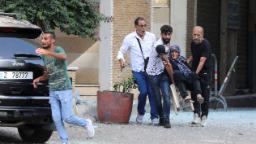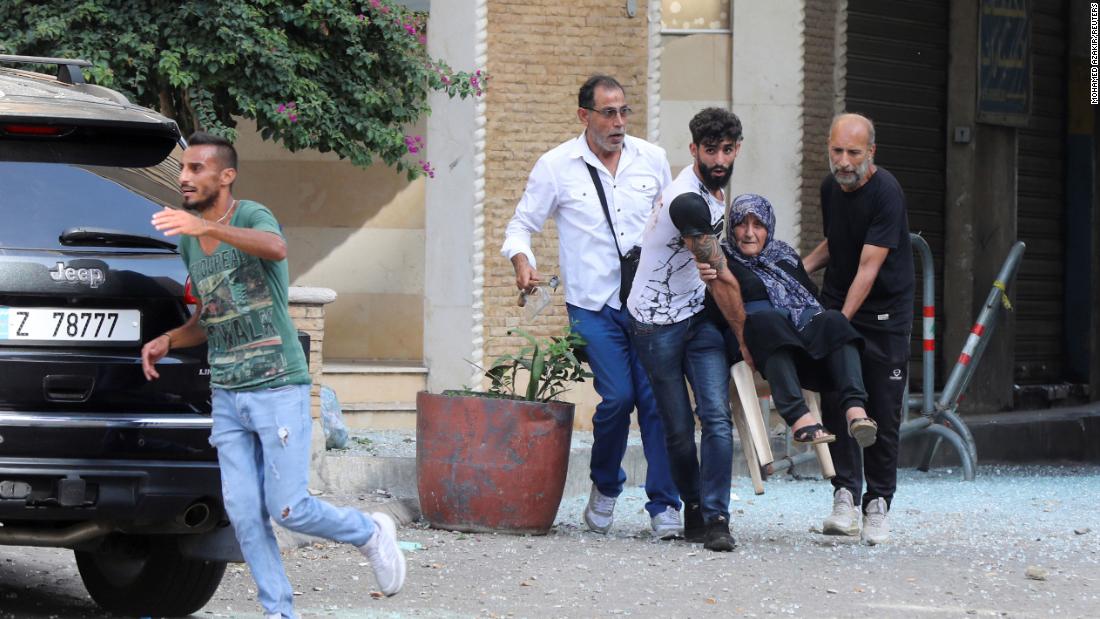Analysis: How an investigation into Beirut’s port explosion is rattling Lebanon’s elite, stirring memories of civil war

Snipers shot people from rooftops. Masked gunmen fired back with rocket-propelled grenades and B7 rockets. Terrified schoolchildren took cover in corridors. And to top it all off, the violence was all playing out along the capital’s former “Green Line,” a major battle front that divided Beirut’s Christian east from the predominantly Muslim west during the 15-year civil war that ended in 1990.
Yet for all the harrowingly familiar optics of Thursday’s fighting, the political environment is new. The violence did not pit Muslim against Christian. Nor are the motivations sectarian. Instead, the violence has emerged from a fault-line that is divorced from those terrible realities.
The probe into the port explosion that killed more than 200 people is at the heart of Thursday’s tumult. The investigation — the biggest ever legal challenge to Lebanon’s ruling elite, who are also a holdover from the civil war — is widely seen as a potential milestone, a tool through which the country can begin to shed its blood-drenched past.
Thursday’s fighters appear keen to keep the tiny Mediterranean country stuck in the past, just when the population has overwhelmingly voiced support for a better future. The judge leading the investigation into the probe, Tarek Bitar, has emerged as a champion of those people. Hezbollah, on the other hand, has positioned itself as Bitar’s most vociferous opponent.
People of all religious stripes were casualties of the August 2020 explosion. Across Lebanon’s religious spectrum, people want justice. In that same vein, Hezbollah — which has not been prosecuted in the probe so far — has led a political offensive on behalf of a multi-religious elite.
The divisions therefore do not play out along Lebanon’s age-old confessional lines. Instead some say observers ought to be looking at the implications of the probe itself. The investigation into the Beirut blast has rattled the political elite in a way that the blast itself, one of the largest non-nuclear explosions in history, could not.
The ruling class appears to be shaking in its boots, after having unsuccessfully petitioned to remove Bitar from his position. This is the same elite that survived a civil war, thanks to an amnesty law that marked the end of the conflict, and was largely unfazed by the October 2019 nationwide popular uprising and the devastating economic catastrophe that followed.
The ramifications of the probe could extend beyond Lebanon and to the Arab world at large. This is a region well-known for brazenly undermining its judiciary, even as the appetite for accountability among an increasingly frustrated Arab youth continues to grow.
If, against all odds, Bitar can see his investigation through, then he could be setting a precedent for the entire region. Arab leaders should take note.
For all the latest world News Click Here

